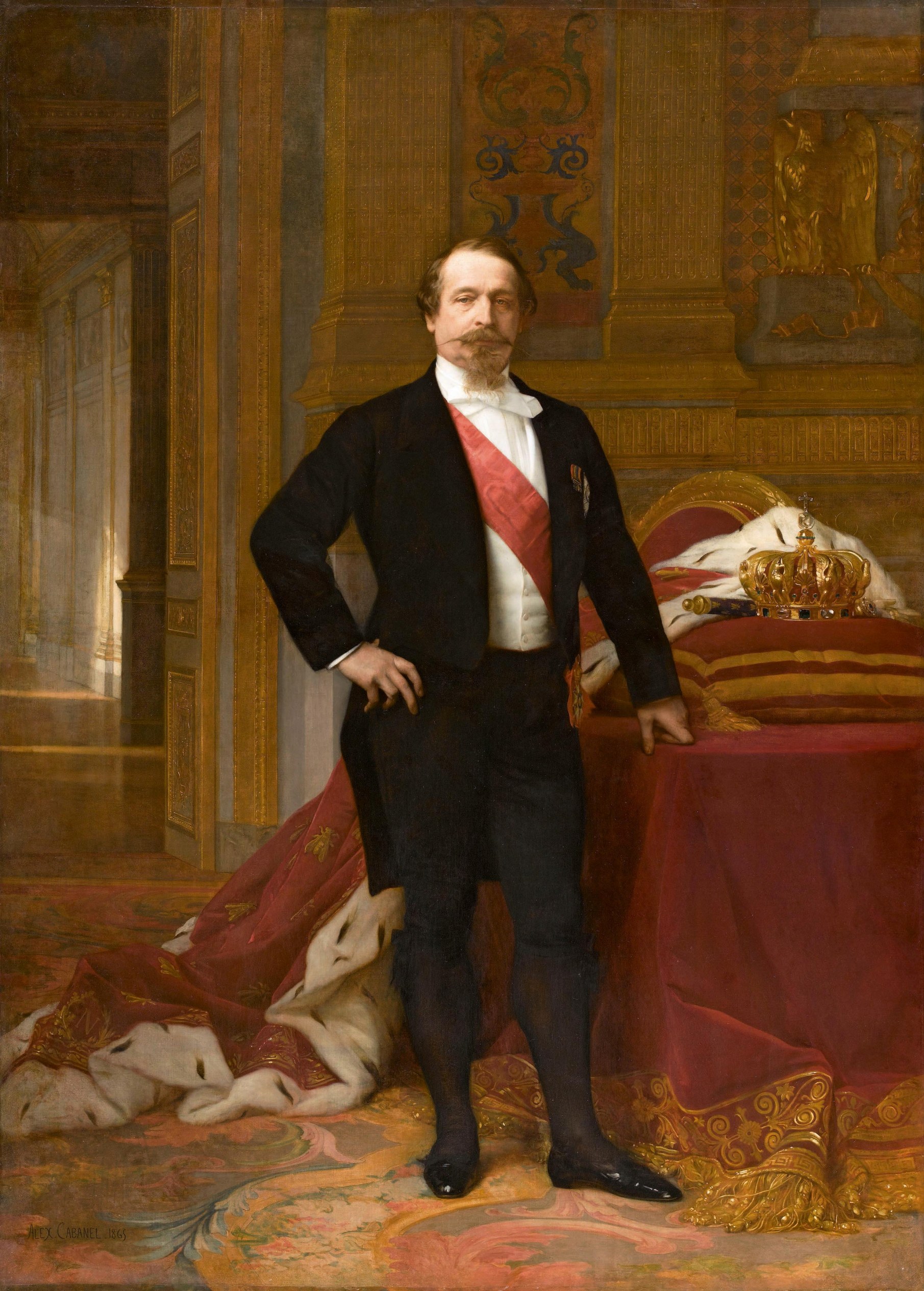Foreign Accent Worries? A French Emperor with a German accent?
 Do you have foreign accent worries? Recently while reading David McCullough's fascinating book "The Greater Journey – Americans in Paris", I was intrigued by the following sentence (p. 202):
Do you have foreign accent worries? Recently while reading David McCullough's fascinating book "The Greater Journey – Americans in Paris", I was intrigued by the following sentence (p. 202):
“Except in infancy, he had never lived in Paris. As a consequence of schooling in Switzerland and Germany, he spoke French with a slight German accent...”
Who was he?
Well, he was Louis Napoleon Bonaparte (left, painting by Alexandre Cabanel [1823-1889]), the improbable president of the Second Republic, and later Emperor Napoleon III, who
“...in 1830, having tried and failed in a ludicrously inept attempt to overthrow King Louis-Philippe, he had been exiled to the United States, where he stayed only briefly before settling in London. (Like Louis-Philippe, he spoke English with ease and, as Thomas Evans had discovered, preferred conversing in English when he did not care to have others nearby understand what was said.)” (p. 203)
What? He had a foreign accent?
For History Buffs
If you are interested, you can read more about Napoleon III in the Wikipedia entry. Except for history buffs, not many English speaking language learners will know much about Louis-Philippe or about Napoleon III.
Clearly, both were quite adept in speaking more than one language. “The London Saturday Journal” (Volume 3 – Page 56 of January 1840, digitized by Google Notes) reports that Louis-Philippe, besides German and English, also spoke Italian: “[he] speaks these three languages fluently, without the slightest foreign accent.”
Both his and his successor's foreign language skills were acquired during their school years and during exile (the latter not necessarily an experience to emulate).
Fluency with a Foreign Accent
As we've suggested in previous blogs posts, Don't worry too much about your accent, as well as Mouth Mechanics, and Fluency, a “native” accent may be desirable, but not necessary for being fluent in a foreign language.
There are plenty of examples of people who became highly successful in a foreign country even though they had a noticeable foreign accent. Similarly, McCullough describes the experiences of many American scholars and artists that had come to Paris by the 1830s:
James Fenimore Cooper, Samuel F.B. Morse, Oliver Wendell Holmes, Charles Sumner just to name a few. They all had to learn French, and very likely, never lost their American accent. Still, they had no trouble communicating and loved their stay in Paris.
After all – if Napoleon III could become emperor of France with a (slight) German accent in his “native” French – you certainly should not give up learning the foreign language in which you want to become fluent!
Do You Want to Practice Your German?
Our games and travel-story based courses are also a great way to practice your German. You'll learn useful vocabulary, hear conversational German in context, and practice your pronunciation by repeating words, phrases, and sentences by after a native speaker.
With our German 1 and 2 story-courses you'll learn and practice German for FREE - with stories of a young man traveling through Germany and - its sequel - solving a "Blüten"-mystery in Berlin. "The Story" and easy games will let you forget that you are actually learning German!
You can also listen to both Stories by clicking on German 1 or German 2 on our Podcast page.
If travel to Germany is in your near future, you may also enjoy our post: 4 Fun German Language Games Before You Travel.
Bio: Peter Rettig is the co-founder of Gamesforlanguage.com. He's a lifelong language learner, growing up in Austria, Germany, and Switzerland. You can follow him on Facebook, Twitter and Instagram, and leave any comments with contact.
